Outdated browser
FEDORA
Opera Prize 2025
Shortlist

Ring of our Time The eternal battle for resources © World Opera Lab/Ondergrond agency/Ellis Biemans/Aqeel Aljawher/ i
Presentation
The gods and goddesses of the great civilizations come together for the first time in many centuries. They are concerned. The world they have created; where people, nature and animals live in harmony, is in danger. Some gods and goddesses are disappointed in humanity's behavior. They have left the world, with disastrous consequences.
A collective of forty artists from different parts of the world create a new opera, in which the mythologies of the world's oldest civilizations are linked together: of the Euphrates region, Mexico, Nigeria, Indonesia and Europe. The opera shows ancient connections between cultures and reflects on the complex use -and misuse- of natural resources. This new Ring is the first opera in which the increasing scarcity of natural resources is viewed from a global perspective.
Each location represents an ancient civilization, but also a hotbed in the global ecological entanglements; the palm oil crisis in Kalimantan, the drying Euphrates in Iraq, oil leaks in West Africa and increasing agricultural monocultures in Mexico. In this new version of the Ring nature takes the leading role. We see our time through her eyes; the river goddess Tiamat cries at the bottom of the dry Euphrates, the earth goddess Ine Aya' gets lost in burning palm oil forests and the angry sea goddess Olokun curses the black oil that polluted her sacred waters. At the end of the Ring the question arises: must the world go up in flames before a new world can emerge, as Wagner claims, or can we heal our world?
Ring of Our Time is performed by an ensemble with traditional and classical instruments, like ud, saz, organ, clarinet, sape and kaldi. Percussion plays an important role in the piece, the traditions of tuned percussion from Indonesia, Africa and Mexico form the musical backbone of the piece. Incredible singers of different traditions will perform in the piece, like Sabra Al Bahri Khatri, Elaf Saeed Mohamed, Vanessa Felter and Joan Otitoyomi.
Artistic Team
World Opera Lab in collaboration with Holland Festival. Artistic Leader: Miranda Lakerveld, script: Anwar Ahwad Alex Benavides, Miranda Lakerveld, compositions by Yadi Nursalim Anugerah, Vincent Martig, Shwan Sulaiman, Krive Abbas and Hussen Al Harbi. video design; Siavash Naghsbandi. With members of the World Opera Lab ensemble including ud-player Haytham Safia, singer/saz player Shwan Sulaiman, pianist Wim Dijkstra, soprano Sabra Al Bahri Khatri, clarinetist Vincent Martig, Winti-priestess Marian Markelo, Vanessa Felter. The project builds on earlier collaborations with Balaan Tumaan ensemble from Kalimantan, Sanjat ensemble from Baghdad, dancers and singers from dance collectives in Lagos and theatre-makers and heritagekeepers in Mexico like Socorro Loeza Flores and Lucero Flores . Production: Marijke de Schepper (Netherlands), Great Middle East Platform/Sylva van Rosse (Iraq) Salman Khairella/Save the Tigris (Iraq), fundraiser Ciska van Beek,. There are workshops and performances in the coming months of 2024. The team will be finalised after these projects.

Support sustainable innovation in opera and dance
 Back to Shortlists
Back to Shortlists 







